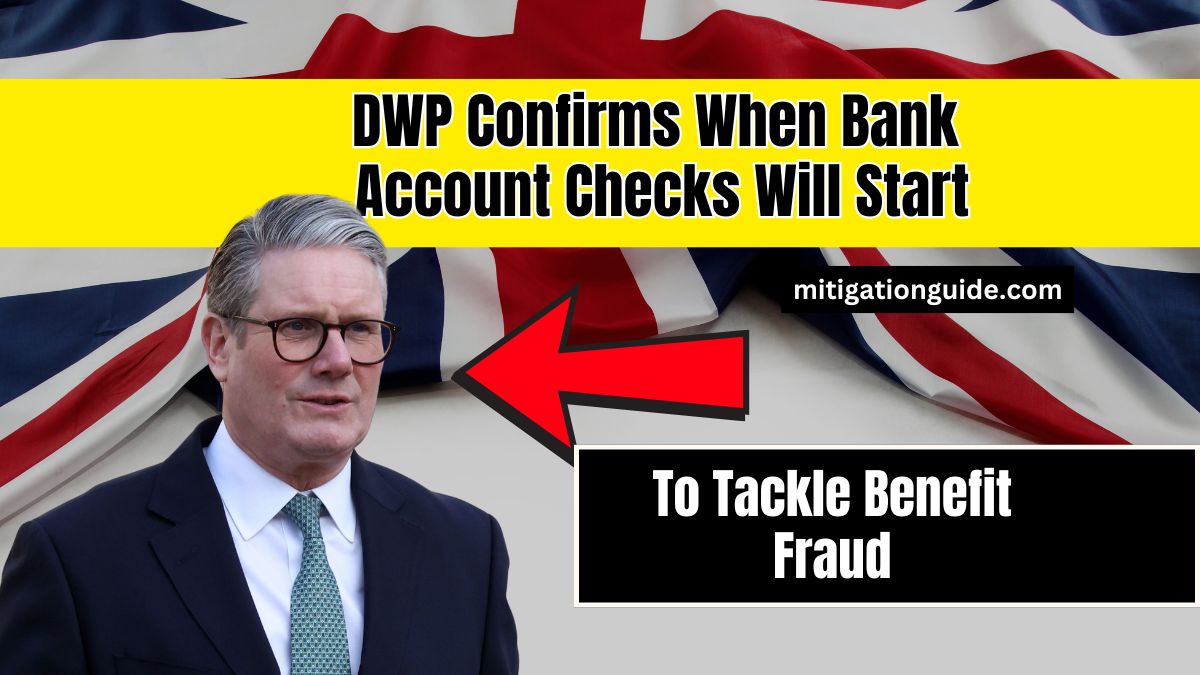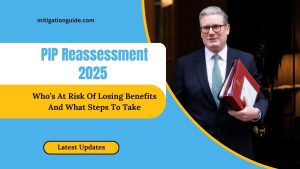The UK Government has launched a significant initiative to combat fraud in the welfare system, which has been described as “the biggest fraud crackdown in a generation.”
The Department for Work and Pensions (DWP) estimates that the Public Authorities (Fraud, Error, and Recovery) Bill will recover £1.5 billion for taxpayers over the next five years.
Key Measures to Tackle Benefit Fraud
Several new measures have been introduced to deter persistent fraudsters, including severe penalties for those who refuse to repay their debts. The government has outlined a series of steps, including:
Driving Bans for Fraudsters
One of the most notable deterrents is the introduction of driving bans for benefit fraudsters who continuously fail to repay their debts. These bans can last for up to two years, serving as a strong deterrent to potential offenders.
Direct Bank Account Seizures
The DWP now has the authority to directly seize funds from offenders’ bank accounts, streamlining the process of reclaiming overpaid benefits and reducing the financial burden on taxpayers.
Eligibility Verification and Collaboration with Banks
A new Eligibility Verification measure will allow banks and other entities to report suspected fraudulent benefit claims. This initiative is aimed at making it easier to spot and stop fraudulent claims before they are paid out.
The DWP has already released 11 comprehensive factsheets that provide further insight into the specifics of how these measures will be safely implemented and regulated.
Implementation Timeline and Oversight
Starting in 2026
The UK Government plans to begin implementing these measures in 2026, with a phased rollout to ensure a controlled and thoughtful approach.
A ‘test and learn’ strategy will be used for the Eligibility Verification Measure, ensuring that the new powers are used in a proportional and effective manner.
Collaboration with Stakeholders
To ensure the success of these measures, the DWP and Cabinet Office will work closely with industry stakeholders, consulting them on Codes of Practice and publishing relevant guidance to ensure clarity and proper execution.
Enhanced Information-Gathering Capabilities
The DWP is also increasing its information-gathering capabilities by collaborating with external third-party entities, such as airlines.
This will help determine whether individuals claiming benefits are residing abroad, which could potentially disqualify them from receiving certain benefits.
Limitations and Safeguards
While the crackdown introduces new data-sharing powers, there are strict limitations on how far the DWP can go in monitoring claimants:
No Access to Spending Details
The DWP will not have unrestricted access to the bank accounts of millions of people receiving means-tested benefits such as Universal Credit, Pension Credit, and Employment and Support Allowance.
Financial institutions will only share essential information regarding eligibility, ensuring that transaction details are not divulged. This is designed to protect the privacy of benefit recipients.
Financial Penalties for Excessive Disclosure
Banks and financial institutions could face penalties for sharing excessive information, particularly details about transactions. This will ensure that data sharing is done with caution, and only the necessary details are passed on to the DWP.
No Assumptions of Guilt
The Eligibility Verification Measure will not be used based on assumptions or suspicions of fraud. It will focus solely on verifying eligibility without presuming anyone’s guilt of any offense.
The UK Government’s bold steps to combat benefit fraud are set to make a substantial impact, with a projected £1.5 billion recovery over five years.
The new measures, including driving bans, bank account seizures, and Eligibility Verification, will play a crucial role in ensuring that only those who are truly eligible receive benefits.
However, safeguards are in place to protect personal privacy and prevent the misuse of power. As these initiatives are rolled out starting in 2026, they will significantly reshape the welfare landscape in the UK.
FAQs
What is the Public Authorities (Fraud, Error, and Recovery) Bill?
The Bill is a legislative measure introduced by the UK Government to combat fraud in the welfare system, aiming to recover £1.5 billion over five years.
How will driving bans be used as a deterrent?
Benefit fraudsters who fail to repay their debts could face driving bans for up to two years, serving as a significant penalty.
Will the DWP have access to bank transaction details?
No, the DWP will not have access to transaction details. Financial institutions will only share essential eligibility data to verify claims.




